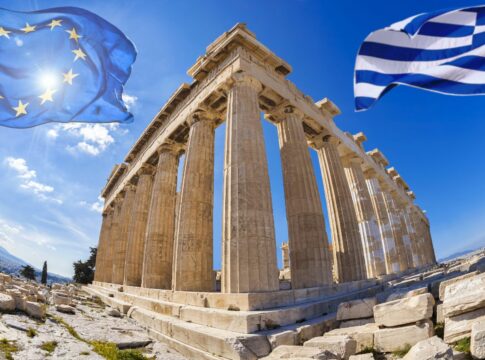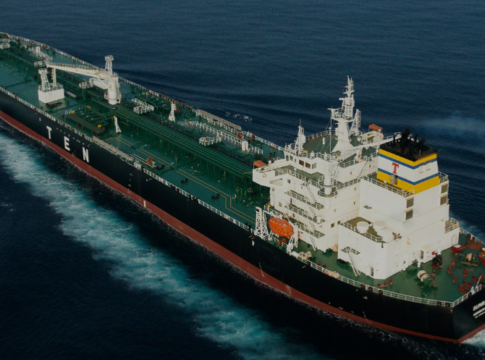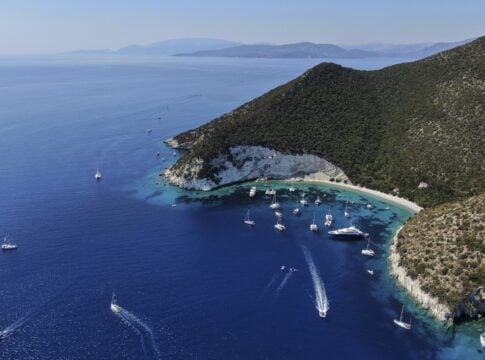Cosco’s efforts to boost investors’ confidence in crisis-battered Greece and to attract other Chinese multinationals to the east Mediterranean county has so far not been exploited, according to Tassos Vamvakidis, the commercial manager at the Cosco-run Piraeus Container Terminal S.A.
Vamvakidis made the point during Naftemporiki’s 3rd annual shipping conference on Thursday, entitled “Greek and European Shipping Competitiveness and prospects in times of uncertainty”, which was held at the Athens Megaron concert hall.
The Shanghai-based shipping giant finalized its purchase of a majority stake of the Piraeus Port Authority last August and assumed the management of Greece’s largest and busiest port — a landmark privatization in the country and one specifically cited in Athens’ memorandum-mandated obligations.
Fielding a question after his address, the Container Terminal S.A. executive said the Chinese multinational “… could contribute to the creation of a positive climate for other Chinese companies to invest in Greece, under the condition that relevant ministries have already established a regulatory framework that would facilitate such investments in the country, such as potential product assembly units.”
Nevertheless, Vamvakidis said the potential remains, whereas Cosco has the volition to contribute to a positive investment climate, “as long as there is interest”, an indirect nod to the government.
Additionally, speaking during the second part of the conference, which focused on the creation of a first-ever maritime cluster in Greece — maritimehellas.org — Vamvakidis said he will immediate propose to his company that it join the initiative.
In terms of numbers since Cosco’s high-profile arrival in Greece — beginning with its assumption of the Piraeus container port — the veteran shipping executive said Piraeus was the fastest growing port worldwide in 2013 and 2014.
The Piraeus Container Terminal S.A. has already sunk 600 million euros into the port in terms of investment, while annually paying 100 million euros in salaries, tax and social security contributions and leasing fees to the Piraeus Port Authority.
Finally, he placed Piraeus directly on Beijing strategic trade initiative, the oft-cited “One Belt, One Road”, saying the plan is to establish Piraeus as the southern gateway for European trade.
The “Cluster” concept
On his part, shipping consultant Michalis Sarlis, who represented the Hellenic Chamber of Shipping, outlined the initiative for an inaugural maritime cluster in Piraeus (maritimehellas.org).
Piraeus Mayor Yannis Moralis referred to the municipality’s emphasis on a “Blue Economy”, especially via efforts to promote the greater Piraeus area as an international maritime and shipping center. He also wholly backed the initiative of a shipping cluster in Piraeus.
Eugenides Foundation president and Eugenides Group CEO Leonidas Dimitriadis-Eugenides directly pointed the heightened concern and uncertainty faced by Greek-controlled shipping from the latest European policies in the maritime transport sector.
Additionally, he said credit institutions have revised their position on financing for the shipping sector, particularly for small-to-medium-sized firms, i.e. the backbone of Greece’s maritime industry.
Ariston Navigation Corp. president Yannis Xylas referred to a need to simplify procedures for short-distance shipping, especially for vessels plying such routes to neighboring third countries, such as the ones in North Africa. He also expressed a hope that the creation of a shipping cluster in Greece will help in this direction.
The president of the Greece-wide Shipowners Association For Passenger Ships (SEEN) and Attica Group’s maritime affairs adviser, Michalis Sakellis, called for the cluster to immediately take shape with a charter, administration and capable executives.
Theodoros Kontes, the president of the Association of Cruise Ship Owners and Maritime Agencies (EEKFN), called for immediate decisions for his specific sub-sector, especially by relevant ministries, while warning that 2017 is not shaping up to be a good year for Greek cruise destinations.
Kontes predicted 800 to 850 less port calls in 2017 than in 2016.
Finally, Hellenic Shipbrokers Association president John Cotzias emphasized the need for greater incentives for shipowners in order for the latter to list their vessels on the Greek registry, pointing to efforts over the years to upgrade Greece’s maritime registry.













